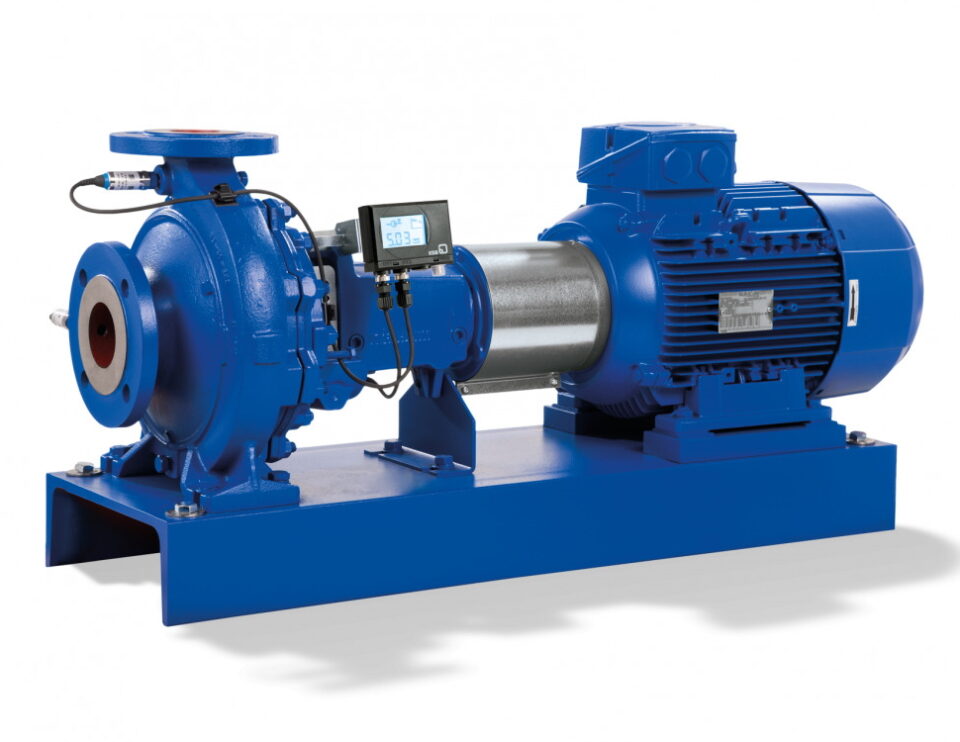When it comes to pumping fluids in industrial applications, there are various types of pumps available on the market. One type that has seen increased popularity recently is the canned motor pump.
This innovative technology offers several benefits over traditional pumps, such as improved efficiency, reduced maintenance requirements, and enhanced safety measures.
Table of Contents
What exactly is a canned motor pump and how does it operate?
In this article, we’ll give an introduction to this technology and examine its fundamental principles.
What is a Canned Motor Pump?
Canned motor pumps are centrifugal pumps with their motor and pump unit housed inside a hermetically sealed housing. Unlike traditional pumps that utilize shafts and seals to transfer power from the motor to the impeller, canned motor pumps use magnetic coupling instead for energy transmission.
The motor and impeller are separated by a thin metal can, which acts as an obstacle to prevent fluid from entering the chamber. Furthermore, this serves as a heat exchanger, transferring heat from the motor to the pumped fluid. Canned motor pumps come in various sizes and capacities, suitable for pumping a variety of fluids such as water, chemicals, and hydrocarbons.
They’re frequently employed where leakage or contamination of the pumped fluid is unacceptable – such as chemical, pharmaceutical, and nuclear industries.
How Does a Canned Motor Pump Function?
- A canned motor pump operates by using magnetic coupling to transmit power from the motor to its impeller.
- This involves two sets of magnets – one on each side – separated by the metal can.
- When the motor is turned on, magnets on the motor side create a magnetic field that passes through the can and attracts magnets on the impeller side.
- This produces a torque that causes the impeller to rotate and pump fluid.
- Due to being housed together in a single housing, there is no need for any shaft or seals to transfer power from the motor to the impeller.
This eliminates any risk of leakage and simplifies maintenance checks.
Furthermore, the metal can that separates the motor and impeller serves as a heat exchanger, transferring heat from the motor to the pumped fluid. This keeps the motor cool and prevents overheating that could cause premature failure.
Canned Motor Pump Benefits
Canned motor pumps offer several advantages over traditional models, such as:
- Reduced Maintenance Needed: Since canned motor pumps lack a shaft or seals, there is no risk of leakage or contamination.
- This eliminates the need for regular maintenance such as seal replacement and minimizes downtime from repairs.
- Increased Safety: Canned motor pumps are hermetically sealed, meaning there is no risk of the pumped fluid leaking into the environment.
- This makes them ideal for applications where leakage or contamination is absolutely unacceptable, such as chemical and nuclear industries.
- Improved Efficiency: Canned motor pumps are more energy-efficient than traditional pumps since they do not suffer from shaft and seal losses, leading to lower energy consumption and reduced running costs.
- Compact Design: Canned motor pumps boast a compact design, taking up less space than traditional pumps.
- This makes them perfect for applications where space is limited, such as offshore platforms and small chemical plants.
Applications of Canned Motor Pumps
- Canned motor pumps are commonly employed in a variety of industrial settings, including chemical processing to move corrosives and hazardous fluids such as acids, alkalis, and solvents.
- Pharmaceutical Manufacturing: Canned motor pumps are commonly used in the pharmaceutical industry to transport fluids such as active pharmaceutical ingredients (APIs), solvents and other chemicals.
- Because these substances can be hazardous or toxic, it’s essential that these pumps be hermetically sealed to prevent leakage or contamination.
- Canned motor pumps are perfect for use in applications requiring cleanroom conditions, such as pharmaceutical manufacturing.
- Their lack of shafts or seals eliminates the risk of contamination, helping to ensure product quality and safety.
Nuclear Power Plants:
Canned motor pumps are employed in nuclear power plants to transport cooling water and other fluids such as reactor coolant and radioactive waste. Due to these potentially hazardous fluids, it’s essential that the pump be hermetically sealed to prevent leakage or contamination.
Canned motor pumps are ideal for use in nuclear power plants due to their resistance to high levels of radiation. Their hermetic seal prevents particles from entering the motor chamber, helping prevent premature failure.
Oil and Gas Industry:
Canned motor pumps are commonly employed in the oil and gas industry to transport hydrocarbons such as crude oil or natural gas liquids.
Since these fluids contain hazardous components that could ignite, it’s essential that the pump be hermetically sealed to prevent leakage or contamination. Fnengg Canned motor pumps manufacturer is perfect for offshore

